Mr. Fossil
Forer@ Senior
Sin verificar
Buenas noches,
Podríamos decir que un puñado de países han influenciado en el desarrollo de los relojes modernos y no cabe duda de que Gran Bretaña es uno de ellos.
He encontrado un excelente articulo que espero encontréis de interés:
BRIEF HISTORY OF BRITISH WATCHMAKING
Watchmaking is a British trade. Every major escapement design, and around three-quarters of the remaining innovations came from these shores.
It can be said to have started with Thomas Tompion (1639-1713), often referred to as the father of English clockmaking. A student of Tompion, George Graham(1673-1751), made further innovations before passing the baton to one of his own students, Thomas Mudge (1715-1794), who invented the lever escapement; which is still the most widely used escapement in today’s watches.
John Harrison (1693-1776) solved the problem of finding your longitude at sea which was considered one of the greatest feats of the age. Enabling British ships to travel accurately and more safely around the globe was one of the major contributing factors to the growth of the British Empire. Following in their footsteps came other great watchmakers such as John Arnold and Thomas Earnshaw.
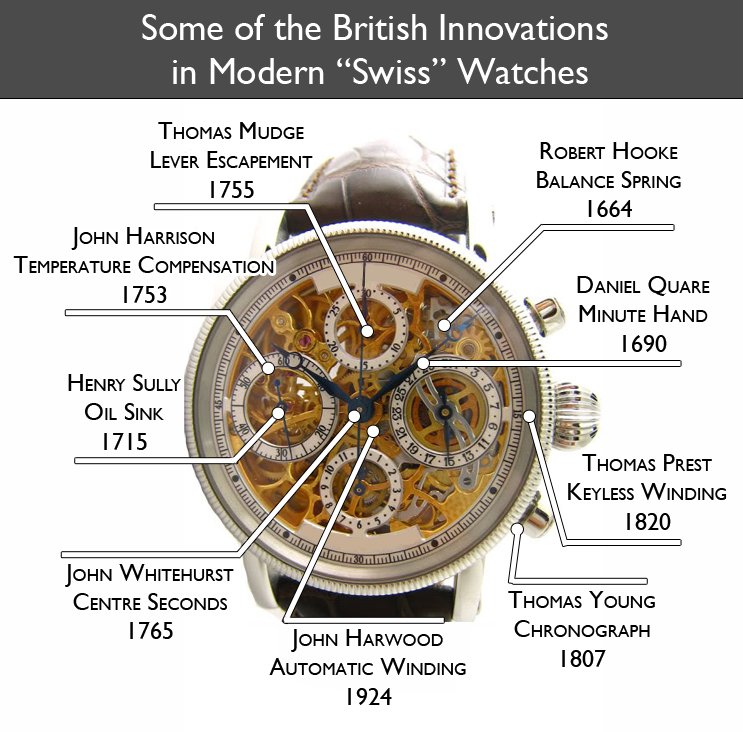
In 1800 Britain made around half of the world’s watches; around 200,000 pieces a year. By 1900 the quantity produced in Britain had declined by half, despite the worldwide market for watches having risen into the millions.
The problem lay in the hand made nature of English watches and the heavy reliance on skilled workers who were reluctant to adapt to the changes in technology. The Swiss and the Americans were much quicker and more successful in adopting mass production techniques. Mass manufactured watches were soon able to compete directly with hand-made ones, and eventually surpass them in performance despite only costing a fraction of the price. The industry in Britain collapsed.
There was a brief resurgence in post war Britain, however the remaining businesses were not robust enough to survive the biggest crisis in watchmaking – the emergence of the quartz watch.
Recently there has been much talk of a revitalization of the British Watchmaking industry, and while it is true that the situation is more hopeful than 10 years previously, there still remains a lack of a brand mass producing any 100% British made watches for the market. In fact there are only the 10-12 watches coming from Roger W Smiths workshop a year that can claim to have been manufactured completely in the British Isles. For the most part the British brands that currently exist are small-scale and often overpriced when compared to more established Swiss brands.
Recently Robert Loomes has started to create watches made with older English Smiths movements (which were 100% made in Britain during the 1950s-1970s), and has demonstrated that there are facilities and talent still remaining in Britain to make all the parts of a watch here.
All we need now is the will and, more importantly, the investment to make British watchmaking for the mass market a reality. Only then can we see “Made in Great Britain” reclaim its rightful crown as the mark of excellence in horology.
Por otro lado, aquí un listado de las marcas Británicas que producen en su patria:
LIST OF CURRENT BRITISH WATCHMAKING COMPANIES
Roger Smith – http://www.rwsmithwatches.com
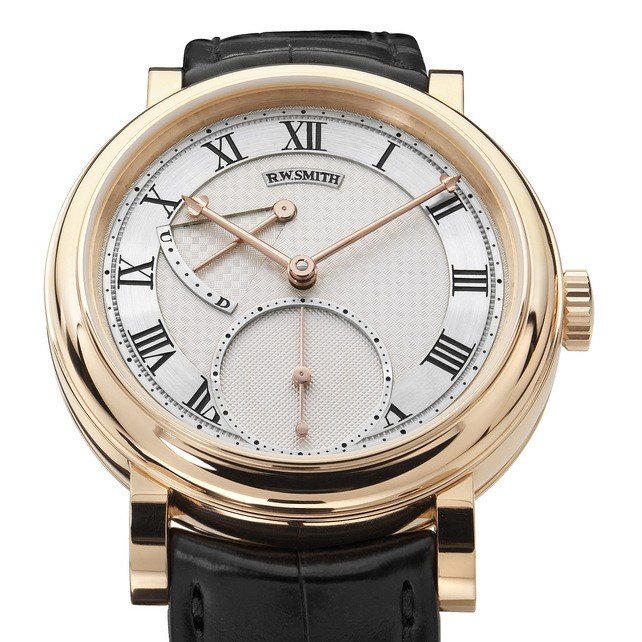
Since the passing of George Daniels in 2011, Roger Smith has taken over the helm as Britain’s foremost watchmaker. In his small workshop on the Isle of Man he, and his team of around 6 people, produce hand-made pieces in the traditional English style.
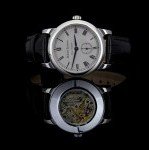
Robert Loomes – http://www.robertloomes.com
Robert is an experienced repairer and restorer of clocks and watches. More recently he has started making his own watches and is very passionate about having them be 100% British using locally sourced materials. Most of the work on each watch is undertaken in their workshop in Stamford, including dial and case manufacture, with any outside help coming from local craftsmen. At least 35 British workers are involved in the production of each watch.
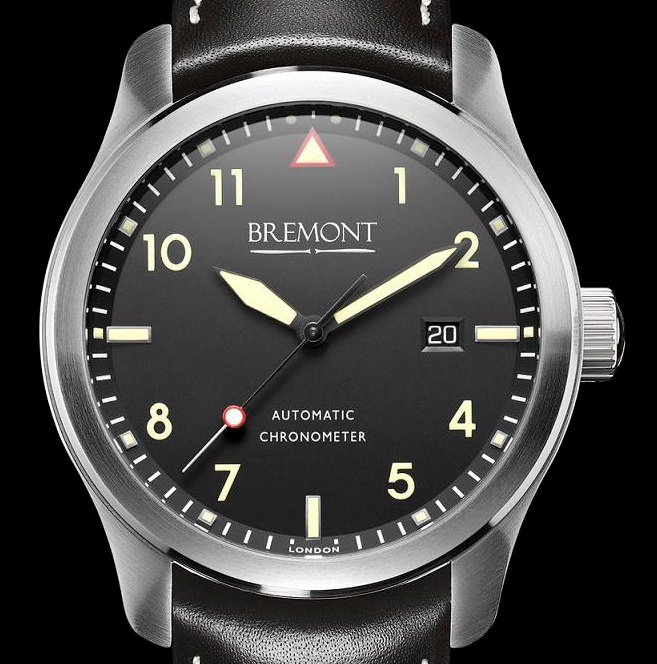
Bremont – http://www.bremont.com
The two brothers, Nick and Giles English, are the founders of this relatively new company. After releasing their first watch in 2007, the company has grown to be the largest British watch brand. They focus mostly on aviation and adventure styled watches.
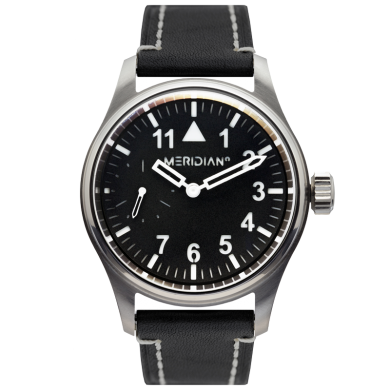
Meridian –

Meridian are a new watch venture based in Norwich. It will be interesting to see whether their very high price point, which is in Rolex territory, is able to encourage enough people. Their watches are large-sized, with some featuring a barrel on top of a barrel arrangement offering 100 hours of power reserve.
CWC (Cabot Watch Company) – http://www.armywatch.co.uk
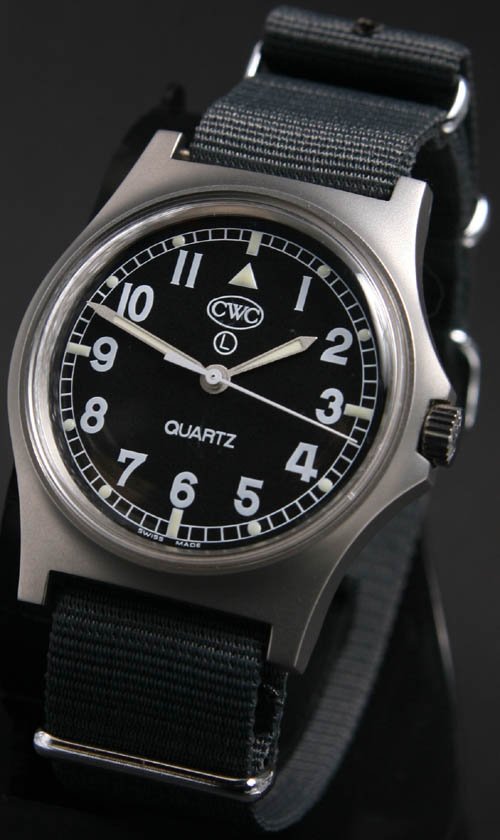
CWC are suppliers of watches to the British Armed Forces. Because of this they all have military straps, robust cases and easy to read dials. A lot of their quartz watches also have a battery hatch to allow soldiers to change the batteries themselves. Their entire range is Swiss made and assembled with ETA movements. Very reasonably priced, with watches generally costing just £100 over the trade price of the movement
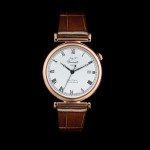
J & T Windmills – http://www.jandtwindmills.com
This small company makes a decent range of old-fashioned style wrist and pocket watches. The company was founded in 2006, using the names of John and Thomas Windmills who were active horologists in the early 1700s.
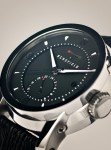
Schofield – http://schofieldwatchcompany.com
I think it is fair to say that Schofield are aiming to be a lifestyle brand rather than just a watch brand, as they offer a range of thoughtfully designed items. They use Swiss SOPROD movements and their cases are made in Germany.
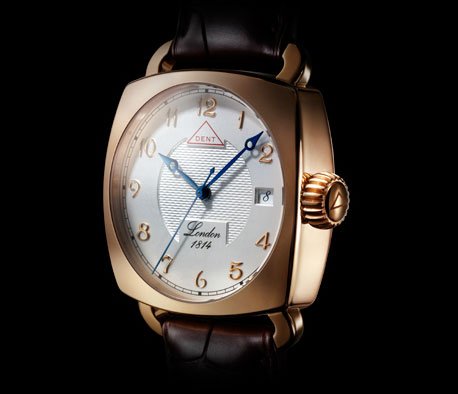
Dent London – http://www.dentlondon.com
Dent’s name comes EJ Dent, who built the tower clock in the Elizabeth Tower, home to Big Ben. They are not a continuous company, but a new business that has taken the old name. They are very expensive, and although they claim to make the movements themselves it is very likely that they are modified Swiss movements.
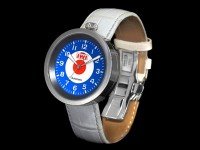
IWI Watches – http://www.iwiwatches.com
This watch brand has been around since 2006. They have a style that is very unusual with an onion crown, a gauge shaped case and a “mod” dial.
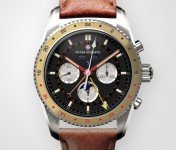
Peter Roberts Watches–

Peter is most recently well-known for his past connection with Bremont, acting as their Technical Director. He is now producing his own watch, an unique chronograph with 5 central hands.
BRITISH WATCHMAKERS ABROAD
Stephen Forsey of Gruebel Forsey – http://www.greubelforsey.com
Peter Speake Marin of Speake Marin – http://www.speake-marin.com
Both are originally from Britain, but now work and live in Western Switzerland.
NON-BRITISH COMPANIES
There are a number of companies, some that are popular brands, that make claims to a British foundation and heritage. However none of these company are directly connected with Britain or with the famous watchmakers or their original businesses which they are named after.
Graham 1695 – Founded in 1995, this independent Swiss company produces high end watches with a racing or aviation theme. Although there are no direct links, they are named after the famous English clock and watchmaker George Graham (1673 – 1751). The 1696 date is in reference to the first signed piece by George Graham
Arnold & Sons – As with Graham, they were founded in 1995, not in 1764 as is claimed. Sadly they have no heritage or connection with John Arnold (1736-99) the famous English chronometer maker or his sons who they are named after. It is now owned by Citizen.
Thomas Earnshaw – a Hong Kong/Chinese brand that is often sold on shopping channels. The quality of their watches is reflected in the price, which is very low, and so you should not expect the watch to last longer than a year without the need for a major service.
Fuente:
https://www.great-british-watch.co.uk/british-watchmaking/
Podríamos decir que un puñado de países han influenciado en el desarrollo de los relojes modernos y no cabe duda de que Gran Bretaña es uno de ellos.
He encontrado un excelente articulo que espero encontréis de interés:
BRIEF HISTORY OF BRITISH WATCHMAKING
Watchmaking is a British trade. Every major escapement design, and around three-quarters of the remaining innovations came from these shores.
It can be said to have started with Thomas Tompion (1639-1713), often referred to as the father of English clockmaking. A student of Tompion, George Graham(1673-1751), made further innovations before passing the baton to one of his own students, Thomas Mudge (1715-1794), who invented the lever escapement; which is still the most widely used escapement in today’s watches.
John Harrison (1693-1776) solved the problem of finding your longitude at sea which was considered one of the greatest feats of the age. Enabling British ships to travel accurately and more safely around the globe was one of the major contributing factors to the growth of the British Empire. Following in their footsteps came other great watchmakers such as John Arnold and Thomas Earnshaw.

In 1800 Britain made around half of the world’s watches; around 200,000 pieces a year. By 1900 the quantity produced in Britain had declined by half, despite the worldwide market for watches having risen into the millions.
The problem lay in the hand made nature of English watches and the heavy reliance on skilled workers who were reluctant to adapt to the changes in technology. The Swiss and the Americans were much quicker and more successful in adopting mass production techniques. Mass manufactured watches were soon able to compete directly with hand-made ones, and eventually surpass them in performance despite only costing a fraction of the price. The industry in Britain collapsed.
There was a brief resurgence in post war Britain, however the remaining businesses were not robust enough to survive the biggest crisis in watchmaking – the emergence of the quartz watch.
Recently there has been much talk of a revitalization of the British Watchmaking industry, and while it is true that the situation is more hopeful than 10 years previously, there still remains a lack of a brand mass producing any 100% British made watches for the market. In fact there are only the 10-12 watches coming from Roger W Smiths workshop a year that can claim to have been manufactured completely in the British Isles. For the most part the British brands that currently exist are small-scale and often overpriced when compared to more established Swiss brands.
Recently Robert Loomes has started to create watches made with older English Smiths movements (which were 100% made in Britain during the 1950s-1970s), and has demonstrated that there are facilities and talent still remaining in Britain to make all the parts of a watch here.
All we need now is the will and, more importantly, the investment to make British watchmaking for the mass market a reality. Only then can we see “Made in Great Britain” reclaim its rightful crown as the mark of excellence in horology.
Por otro lado, aquí un listado de las marcas Británicas que producen en su patria:
LIST OF CURRENT BRITISH WATCHMAKING COMPANIES
Roger Smith – http://www.rwsmithwatches.com

Since the passing of George Daniels in 2011, Roger Smith has taken over the helm as Britain’s foremost watchmaker. In his small workshop on the Isle of Man he, and his team of around 6 people, produce hand-made pieces in the traditional English style.
- Price point: c. £35,000-£250,000 (as each piece is bespoke and sold privately these prices may not be correct)
- Quantity produced: 10-12 per year
- Percentage British: 100%
_____________________________

Robert Loomes – http://www.robertloomes.com
Robert is an experienced repairer and restorer of clocks and watches. More recently he has started making his own watches and is very passionate about having them be 100% British using locally sourced materials. Most of the work on each watch is undertaken in their workshop in Stamford, including dial and case manufacture, with any outside help coming from local craftsmen. At least 35 British workers are involved in the production of each watch.
- Price point: £3,850-£17,800
- Quantity produced: 400 per year, produced in one off batches of 50-100 pieces
- Percentage British: 100%
- UK Staff: 12
_____________________________

Bremont – http://www.bremont.com
The two brothers, Nick and Giles English, are the founders of this relatively new company. After releasing their first watch in 2007, the company has grown to be the largest British watch brand. They focus mostly on aviation and adventure styled watches.
- Price point: £2,550-£20,000
- Quantity produced: 3,000-4,000 per year
- Percentage British: 50%. Their movements are all Swiss sourced
_____________________________

Meridian –

Meridian are a new watch venture based in Norwich. It will be interesting to see whether their very high price point, which is in Rolex territory, is able to encourage enough people. Their watches are large-sized, with some featuring a barrel on top of a barrel arrangement offering 100 hours of power reserve.
- Price point: £4,500-£5,000
- Quantity produced: aiming for 100-500 per year
- Percentage British: 60%. The movement is a modified Swiss sourced ETA 6497/6498
_____________________________
CWC (Cabot Watch Company) – http://www.armywatch.co.uk

CWC are suppliers of watches to the British Armed Forces. Because of this they all have military straps, robust cases and easy to read dials. A lot of their quartz watches also have a battery hatch to allow soldiers to change the batteries themselves. Their entire range is Swiss made and assembled with ETA movements. Very reasonably priced, with watches generally costing just £100 over the trade price of the movement
- Price point: £130-£900
- Quantity produced: unknown
- Percentage British: 10%
_____________________________

J & T Windmills – http://www.jandtwindmills.com
This small company makes a decent range of old-fashioned style wrist and pocket watches. The company was founded in 2006, using the names of John and Thomas Windmills who were active horologists in the early 1700s.
- Price point: £625-£795
- Quantity produced per year: unknown. Probably less than 500
- Percentage British: 60%. All movements are Swiss made
_____________________________

Schofield – http://schofieldwatchcompany.com
I think it is fair to say that Schofield are aiming to be a lifestyle brand rather than just a watch brand, as they offer a range of thoughtfully designed items. They use Swiss SOPROD movements and their cases are made in Germany.
- Price point: £3,000+
- Quantity produced per year: unknown. Probably less than 500
- Percentage British: 20%
_____________________________

Dent London – http://www.dentlondon.com
Dent’s name comes EJ Dent, who built the tower clock in the Elizabeth Tower, home to Big Ben. They are not a continuous company, but a new business that has taken the old name. They are very expensive, and although they claim to make the movements themselves it is very likely that they are modified Swiss movements.
- Price point: £25,000
- Quantity produced: unknown. Probably less than 100
- Percentage British: 60%
_____________________________

IWI Watches – http://www.iwiwatches.com
This watch brand has been around since 2006. They have a style that is very unusual with an onion crown, a gauge shaped case and a “mod” dial.
- Price point: £1,000-£3,300
- Quantity produced: unknown. Probably less that 500
- Percentage British: 50%. Movements are all Swiss ETA calibres.
_____________________________

Peter Roberts Watches–

Peter is most recently well-known for his past connection with Bremont, acting as their Technical Director. He is now producing his own watch, an unique chronograph with 5 central hands.
- Price point: £18,000 for the model in Steel, £28,000 in Rose Gold
- Quantity produced: 40 made in Steel, plus 4 in Rose Gold
- Percentage British: 60%. Swiss made movement heavily modified by Peter
_____________________________
BRITISH WATCHMAKERS ABROAD
Stephen Forsey of Gruebel Forsey – http://www.greubelforsey.com
Peter Speake Marin of Speake Marin – http://www.speake-marin.com
Both are originally from Britain, but now work and live in Western Switzerland.
_____________________________
NON-BRITISH COMPANIES
There are a number of companies, some that are popular brands, that make claims to a British foundation and heritage. However none of these company are directly connected with Britain or with the famous watchmakers or their original businesses which they are named after.
Graham 1695 – Founded in 1995, this independent Swiss company produces high end watches with a racing or aviation theme. Although there are no direct links, they are named after the famous English clock and watchmaker George Graham (1673 – 1751). The 1696 date is in reference to the first signed piece by George Graham
Arnold & Sons – As with Graham, they were founded in 1995, not in 1764 as is claimed. Sadly they have no heritage or connection with John Arnold (1736-99) the famous English chronometer maker or his sons who they are named after. It is now owned by Citizen.
Thomas Earnshaw – a Hong Kong/Chinese brand that is often sold on shopping channels. The quality of their watches is reflected in the price, which is very low, and so you should not expect the watch to last longer than a year without the need for a major service.
This article was originally published in November 2012, and has been updated 76 times since then. If you are one of the companies listed and wish to help update your details, please get in touch via the contact page
Fuente:
https://www.great-british-watch.co.uk/british-watchmaking/

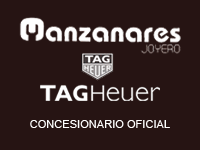
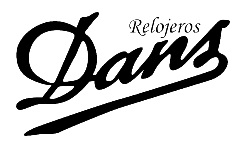

 :
: .
.